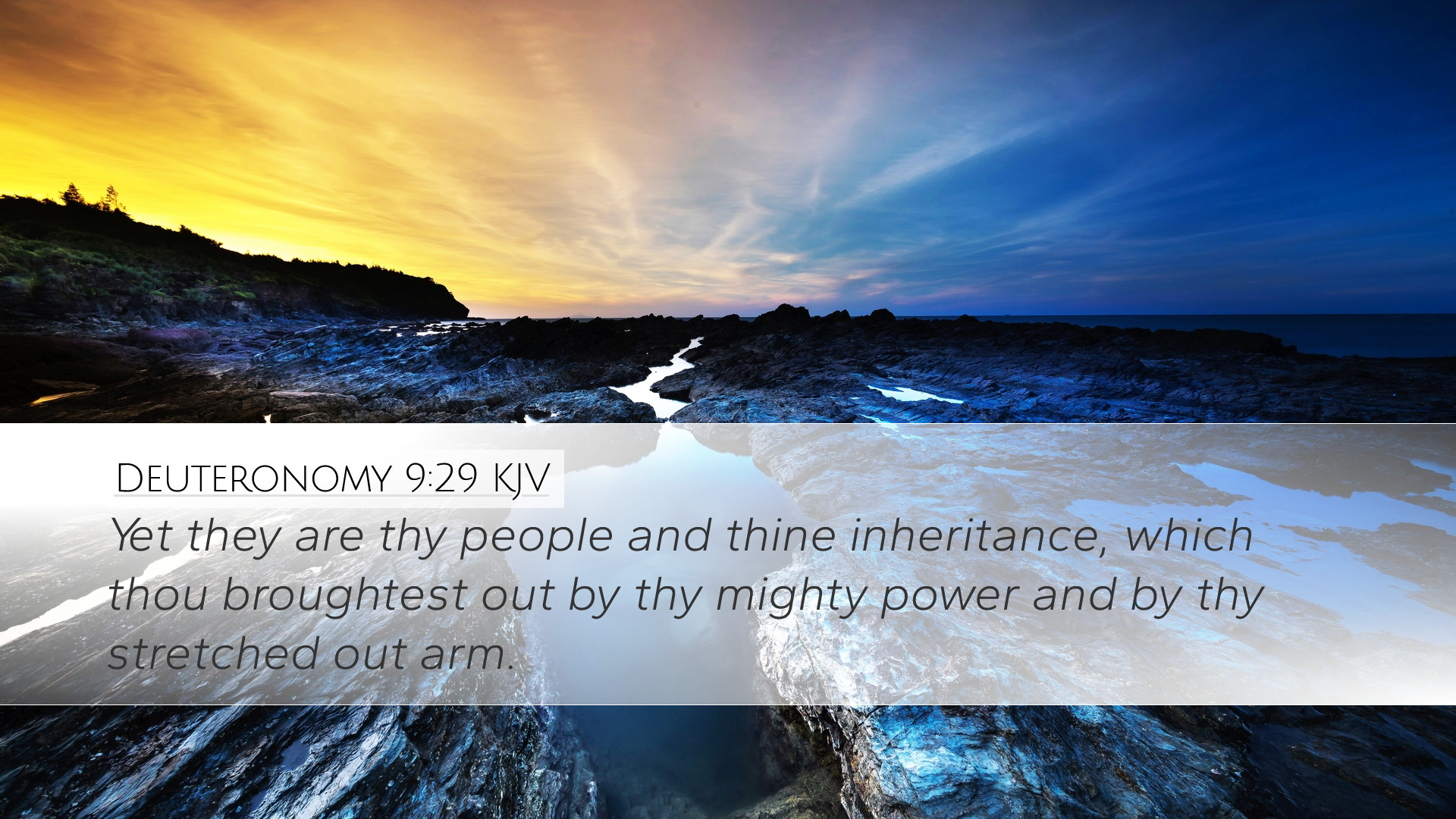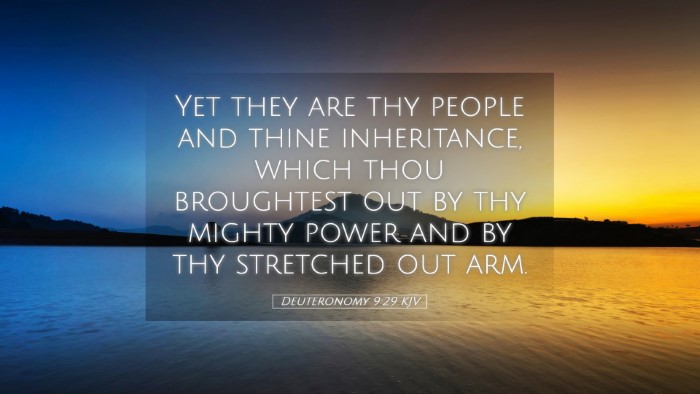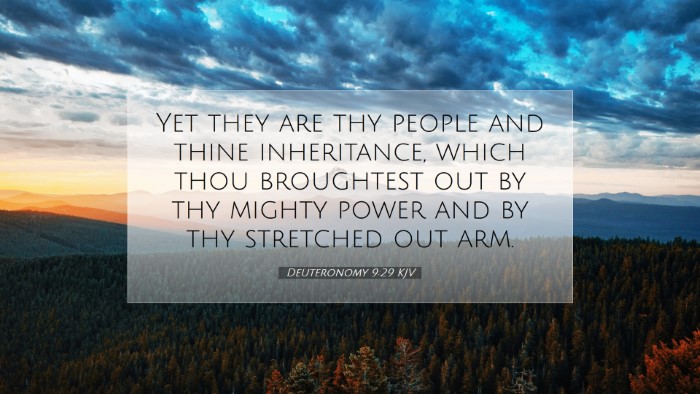Commentary on Deuteronomy 9:29
Bible Verse: Deuteronomy 9:29 - "Yet they are thy people and thine inheritance, which thou broughtest out by thy mighty power and by thy stretched out arm."
Introduction
This verse encapsulates a profound moment in the history of Israel, highlighting the relationship between God and His chosen people. This commentary integrates insights from notable public domain sources to provide a comprehensive understanding of the theological and historical nuances present in this significant text.
Contextual Background
Deuteronomy is framed as a series of speeches by Moses, delivered to the Israelites as they stand on the brink of entering the Promised Land. This section emphasizes God's enduring commitment to His people despite their failures and rebellions. The acknowledgment of Israel as the Lord's inheritance is a crucial theme that speaks to God’s election of Israel and the implications for both divine sovereignty and human responsibility.
Insights from Matthew Henry
According to Matthew Henry, the verse emphasizes God's unyielding affection for Israel. Henry notes that even amid the Israelites' recurrent disobedience, they remain God’s possession, indicating a covenantal relationship that transcends their unfaithfulness.
- Covenantal Love: God’s steadfast love is highlighted; even when Israel strays, God does not sever the relationship, demonstrating His grace and mercy.
- Divine Power: The mention of "mighty power" refers to the miracles of the Exodus. Henry suggests that these acts are reminders of God’s ability to deliver and save His people.
Reflections from Albert Barnes
Albert Barnes offers a theological exposition on Israel being the "inheritance" of God, underscoring the implications of this divine selection. Barnes interprets the phrase as both an expression of privilege and responsibility.
- Chosen People: The designation of Israel as God’s inheritance suggests a special status that comes with expectations of obedience and fidelity to God’s commandments.
- Empowerment for Mission: God’s mighty deeds were not only acts of power but also a means to convey His character and purpose. Barnes emphasizes that Israel was chosen to represent God’s holiness to the nations.
Analysis from Adam Clarke
Adam Clarke’s commentary provides a detailed examination of the phrase "stretched out arm," associating it with God’s omnipotence and readiness to intervene on behalf of His people. Clarke emphasizes that the act of deliverance from Egypt was an ongoing testament to God's protective nature.
- Symbol of Strength: The "stretched out arm" symbolizes not just physical power, but also a reaching out in love and preservation of His people, akin to a shepherd guiding his flock.
- Inheritors of Promise: Clarke also aligns this verse with the idea of the Promised Land as a physical representation of spiritual blessings, with God claiming Israel as His treasured possession.
Theological Implications
The implications of Deuteronomy 9:29 stretch beyond ancient Israel; it illustrates core themes relevant to modern Christian theology.
- The Nature of God’s Grace: Just as Israel's identity is rooted in God's grace, modern believers are reminded that their worth is not based on personal merit but on divine election and mercy.
- The Responsibility of God’s People: The text challenges believers today to reflect on their identity as God’s chosen people. This call to live faithfully is accompanied by the assurance of God’s enduring presence and promises.
Conclusion
Deuteronomy 9:29 serves as a powerful reminder of the profound relationship between God and His people. Through the insights of Henry, Barnes, and Clarke, readers are encouraged to comprehend the depth of God's commitment, the expectation of righteousness, and the ongoing relevance of this covenantal relationship for believers today. This verse not only affirms the historical identity of Israel but also invites all people to embrace their identity in Christ as heirs of God’s promises.


